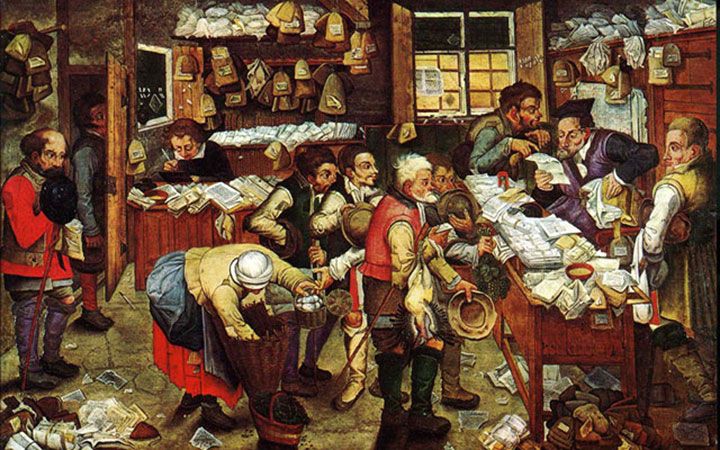
UPDATE – July 17, 2014: The challenge idea this post is soliciting to be stolen has now been stolen. Please do not steal this idea for submission to the ImagineX Challenge. But if you want to steal it for anything else, please do.
Let’s get you up to speed – HeroX is currently running a crowd-sourcing challenge for ideas. It’s called the ImagineX Challenge. We’re awarding $1000 each to 10 challenge ideas submitted by people just like you. So if you’ve identified a problem in your life, head over here and submit it in the form of a challenge. If you’re an innovator or problem-solver, head over here and see what problems other people have identified. If you’re a philanthropist, head over here and see if there’s anything you’d like to philanthropize.
Now for my problem – I’ve got an awesome idea for ImagineX that I cannot put into competition because I work for HeroX. So I want someone to steal this idea. Please. I’m begging you.
A friend recently shared this Vice article about a kid who wrote a browser plug-in that highlights the names of US Senators and Members of Congress on web pages. When you hover over the highlighted names, a pop-up appears that lists the sources of that politician’s funding from 2012, the most recent complete set of political contribution reports. This is a brilliant application and a good first step to holding politicians to account and protecting their integrity of their office even when they won’t.
So here’s my idea, which I want someone to steal, please…
Everybody I know has, at one point or another, complained about their taxes. Income taxes, sales taxes, estate taxes, gas taxes, alcohol and tobacco taxes, transfer taxes, property taxes, capital gains taxes, this list goes on and on. There are taxes for just about everything and there are no taxes that someone at some point hasn’t complained about. And often, when someone complains about taxes, they mention that their justification for being able to complain about taxes is that they are a taxpayer.
As if taxes are some kind of subscription fee that enable us to complain about our governments.
This point of view has no validity. Everyone already has the ability to complain about their government. Taxes have no effect on that.
But I understand why people think this way. It’s the perception of compensation: “Sure I’ll give you my money but then I get to tell you what to do.” This for that, right? This assumed relationship reveals a lack of integrity in the citizenry. In lieu of knowing exactly what their tax money is being used for, tax payers are scrambling for the mere feeling of balance and expressing frustration towards the government is the easiest outlet for that.
But maybe we could address the actual problem – tax payers do not know what their taxes are being used for. That’s the only problem. Everything else is a side effect. Tax payers hate the government for taking their money because they don’t know exactly what the government is using it for. And those in government don’t necessarily speak the language of tax payers when they release this information. How many tax payers can actually make sense of a federal budget?
Taxes exist to pay for the things that we take for granted. The problem is not that we have to pay taxes; it’s that we take for granted those things that are enabled by taxes. And that makes for a poorer citizenry.
I propose a challenge that bridges this disconnect. The Tax Flow Challenge. (Please feel free to change the title to your liking.)
The purpose of this challenge is to create a system (probably online) that allows tax payers to accurately see exactly what their taxes paid for, down to the cent.
If I paid $11,589.31 in income tax last year, I should know if $1,856.27 of that went to a national military and where in the military it went, how many boots or cold-weather gear I helped to purchase. Or what part of a helicopter my taxes helped repair.
If $64.10 of my taxes went towards office supplies, I should know who is using the pens I paid for.
Not only do I want to see that $2,019.11 went to maintaining infrastructure, I want to see exactly what infrastructure was paid for using my money. I should be able to go to a certain part of a certain road or bridge and say, “I helped make this.”
I want to see not only that $3,340.59 went to education but what schools, books and teachers that money helped provide. I should be able to walk into a public school I helped fund, enter a classroom I helped fund, and say to a teacher whose salary I helped pay for, “Hey, I’m glad I could help you out. Keep up the good work.”
By providing complete transparency to the taxation process, the Tax Flow Challenge would allow tax payers to actually take ownership of their contributions to their society. It would give tax payers an actual sense of pride rather than a sense of antagonism.
And it would protect the integrity of our system. If $1,678.26 of my taxes were spent on something that was truly not in the best interests of the most amount of people, that would be visible and then I would actually have something valid to complain about. And I would actually have the evidence to be able to do something about it.
For many tax payers, the Tax Flow Challenge would make paying taxes an expression of pride. It would give citizens, tax payers and voters the one and only tool they really need to co-exist in a democracy – the ability to see what they’re creating in the context of civilization.
Somebody, please, steal this idea. I’ll submit it to the ImagineX Challenge on the last day of the challenge if no one else has; but then it could not be entered into competition for one of the ten $1000 prizes.
Could an extra $1000 help you out? Maybe pay some of your taxes? Steal this idea.








